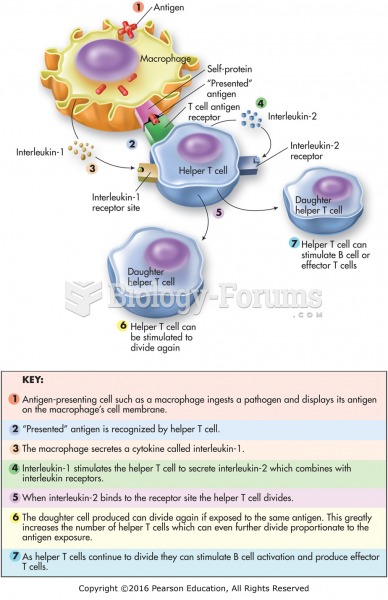|
|
|
The average adult has about 21 square feet of skin.
The Babylonians wrote numbers in a system that used 60 as the base value rather than the number 10. They did not have a symbol for "zero."
The term bacteria was devised in the 19th century by German biologist Ferdinand Cohn. He based it on the Greek word "bakterion" meaning a small rod or staff. Cohn is considered to be the father of modern bacteriology.
Amoebae are the simplest type of protozoans, and are characterized by a feeding and dividing trophozoite stage that moves by temporary extensions called pseudopodia or false feet.
Ether was used widely for surgeries but became less popular because of its flammability and its tendency to cause vomiting. In England, it was quickly replaced by chloroform, but this agent caused many deaths and lost popularity.
 Development encompasses both gains and losses. Sometimes a health crisis (loss) can result in a heal
Development encompasses both gains and losses. Sometimes a health crisis (loss) can result in a heal
 The macula densa and the juxtaglomerular (JG) cells. Osmoreceptors in the macula densa sense low ...
The macula densa and the juxtaglomerular (JG) cells. Osmoreceptors in the macula densa sense low ...





